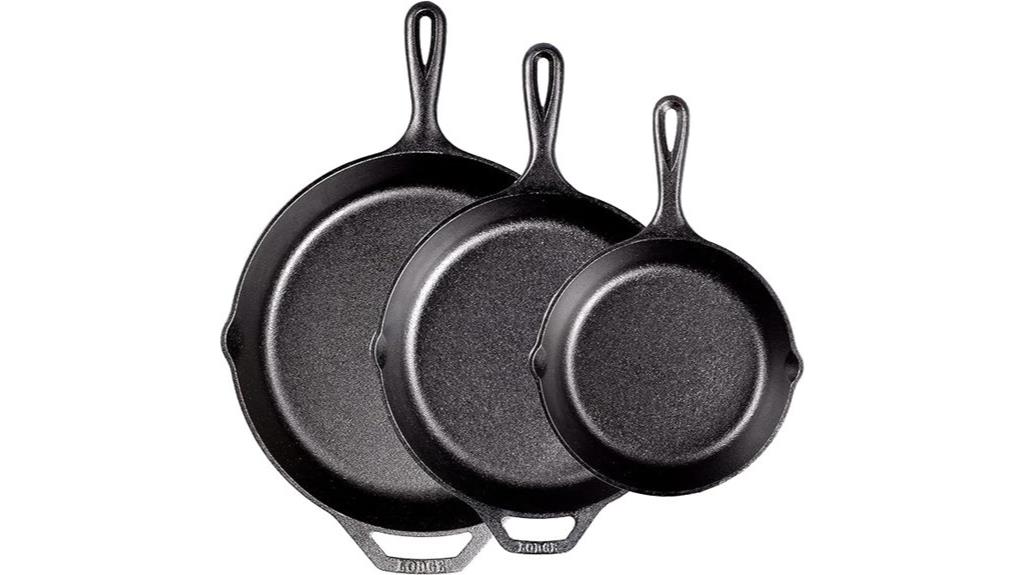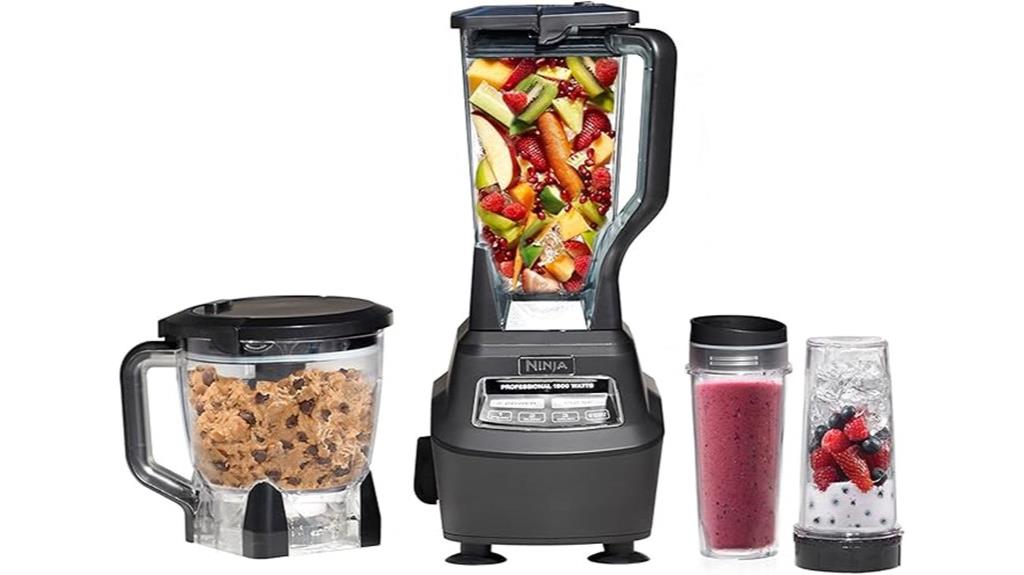You're about to set out on a culinary journey that marries tradition with innovation. Vegan soul food isn't just a trend; it's a celebration of African American heritage reimagined for modern, plant-based lifestyles. As you explore this vibrant cuisine, you'll discover how familiar comfort foods can be transformed into nourishing, cruelty-free delights without sacrificing flavor or cultural significance. From family gatherings to holiday feasts, these recipes offer a fresh take on beloved classics. But there's more to this cuisine than meets the eye—it's a gateway to understanding the rich history and adaptability of soul food.
Key Takeaways
- Vegan soul food transforms traditional dishes using plant-based ingredients without sacrificing flavor or cultural significance.
- Cashew-based sauces and nutritional yeast create creamy, cheesy textures in classics like vegan mac and cheese.
- Smoky spices like paprika enhance depth and richness in meat-free soul food dishes.
- Vegan soul food offers comforting, hearty meals suitable for various occasions, from family dinners to celebrations.
- Experimenting with plant-based ingredients in soul food recipes promotes sustainability while honoring culinary heritage.
History
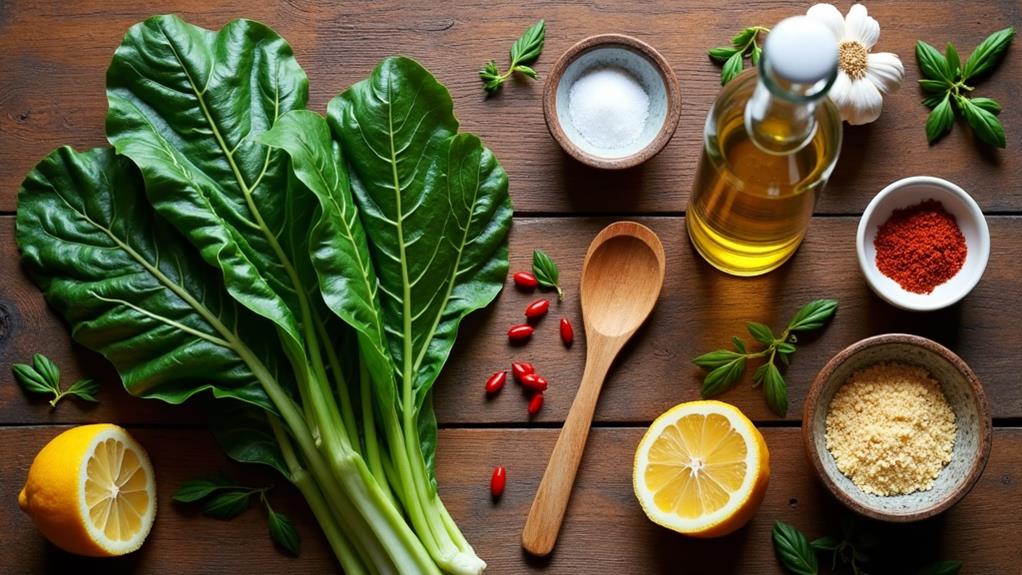
The roots of vegan soul food can be traced back to the African American culinary tradition, which evolved from the creativity and resourcefulness of enslaved people.
You'll find that these early cooks often relied on plant-based ingredients out of necessity, as meat was scarce and expensive. They transformed humble vegetables, grains, and legumes into flavorful, hearty dishes that became staples of Southern cuisine.
As the Civil Rights movement gained momentum in the 1960s, many African Americans began exploring veganism as a way to reclaim their health and challenge the food industry's practices.
You'll see how this shift led to the creation of vegan versions of classic soul food dishes, maintaining the rich flavors and cultural significance while eliminating animal products.
Today, vegan soul food has gained popularity beyond the African American community, with chefs and home cooks alike experimenting with plant-based ingredients to recreate beloved dishes.
You'll discover that this cuisine continues to evolve, blending traditional techniques with modern innovations to create meals that are both nostalgic and forward-thinking.
Recipe
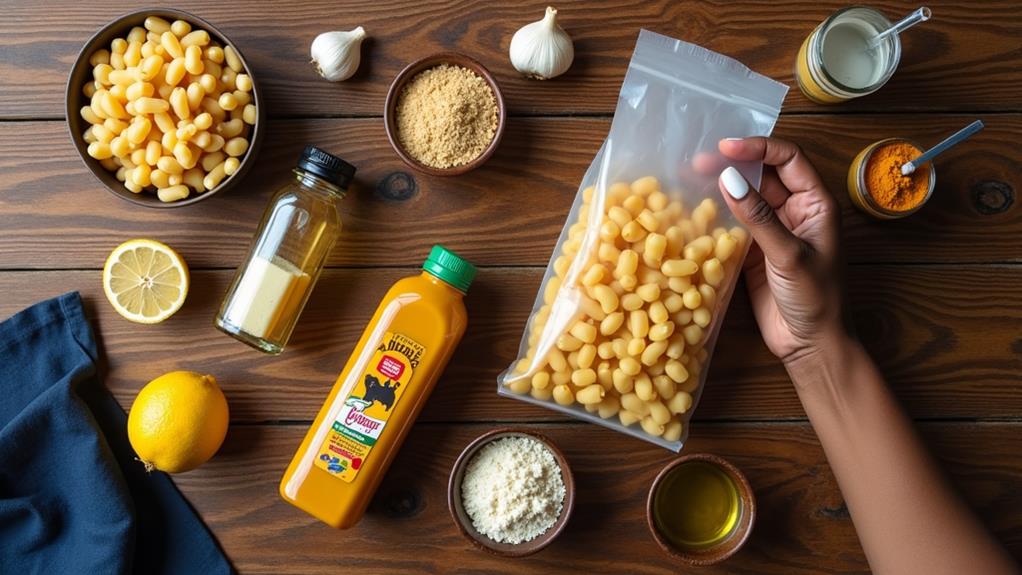
Vegan soul food is a delicious and comforting twist on traditional Southern cuisine. By replacing animal products with plant-based alternatives, we can create dishes that are just as flavorful and satisfying as their non-vegan counterparts. This recipe for vegan mac and cheese captures the essence of soul food while remaining entirely plant-based.
This vegan mac and cheese uses cashews and nutritional yeast to create a creamy, cheesy sauce that coats the pasta perfectly. The addition of smoked paprika and garlic powder gives the dish a depth of flavor that mimics the richness of traditional mac and cheese. Topped with crispy breadcrumbs, this comfort food classic is sure to please vegans and non-vegans alike.
- 16 oz elbow macaroni
- 1 cup raw cashews, soaked for 4 hours
- 1 cup vegetable broth
- 1/2 cup nutritional yeast
- 1/4 cup lemon juice
- 2 tbsp olive oil
- 2 cloves garlic
- 1 tsp smoked paprika
- 1 tsp onion powder
- 1/2 tsp turmeric
- Salt and pepper to taste
- 1/2 cup breadcrumbs
- 2 tbsp vegan butter, melted
Cook the macaroni according to package instructions. While the pasta is cooking, blend the soaked cashews, vegetable broth, nutritional yeast, lemon juice, olive oil, garlic, smoked paprika, onion powder, turmeric, salt, and pepper in a high-speed blender until smooth.
Drain the cooked pasta and return it to the pot. Pour the cashew cheese sauce over the pasta and stir to combine. In a small bowl, mix the breadcrumbs with melted vegan butter. Transfer the mac and cheese to a baking dish, top with the breadcrumb mixture, and bake at 375°F for 15-20 minutes or until the top is golden brown.
For a creamier sauce, you can add a splash of plant-based milk to the blender when making the cheese sauce. To add more nutrients and flavor, consider stirring in some steamed broccoli, peas, or roasted red peppers before baking. If you want a spicier version, add a pinch of cayenne pepper or a few dashes of hot sauce to the cheese sauce.
Leftovers can be stored in an airtight container in the refrigerator for up to 3 days and reheated in the microwave or oven.
Final Thoughts
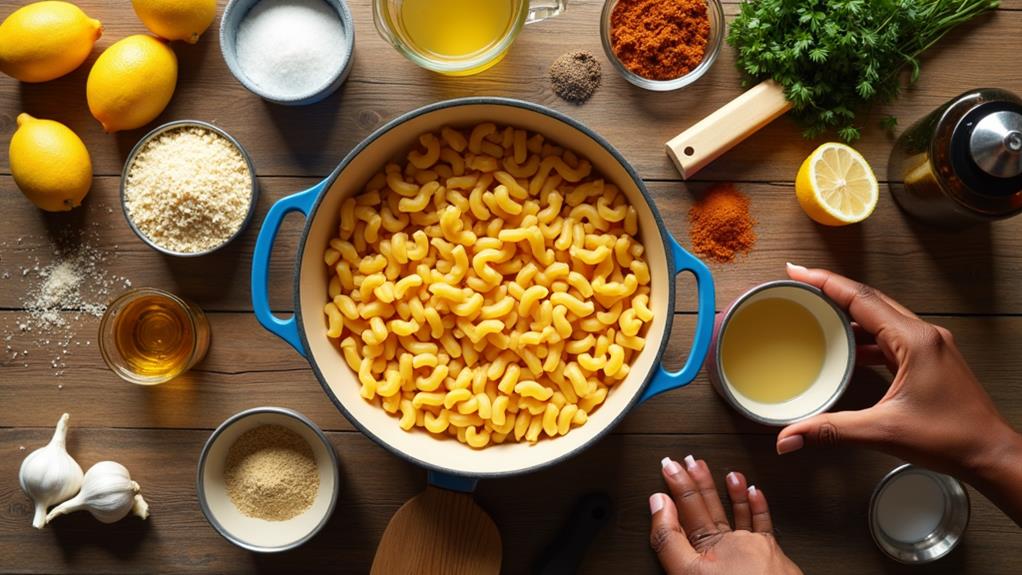
As we wrap up our exploration of vegan soul food, it's clear that this culinary approach offers more than just a plant-based alternative to traditional Southern cuisine.
It's a celebration of flavors, textures, and cultural heritage that doesn't compromise on taste or ethical considerations.
By embracing vegan soul food, you're not only nourishing your body with wholesome plant-based ingredients but also participating in a movement that promotes sustainability and compassion.
You'll find that these dishes can satisfy even the most devoted meat-eaters, proving that comfort food doesn't need animal products to be delicious and satisfying.
Remember, cooking vegan soul food is an opportunity to get creative in the kitchen.
Don't be afraid to experiment with different ingredients and techniques to make these recipes your own.
As you continue to explore this cuisine, you'll discover a world of flavors that honor tradition while paving the way for a more sustainable future.
Whether you're a long-time vegan or simply looking to incorporate more plant-based meals into your diet, vegan soul food offers a delicious and meaningful way to connect with Southern culinary traditions.
Join The Discussion
Share your insights and experiences to inspire meaningful conversations within our community.
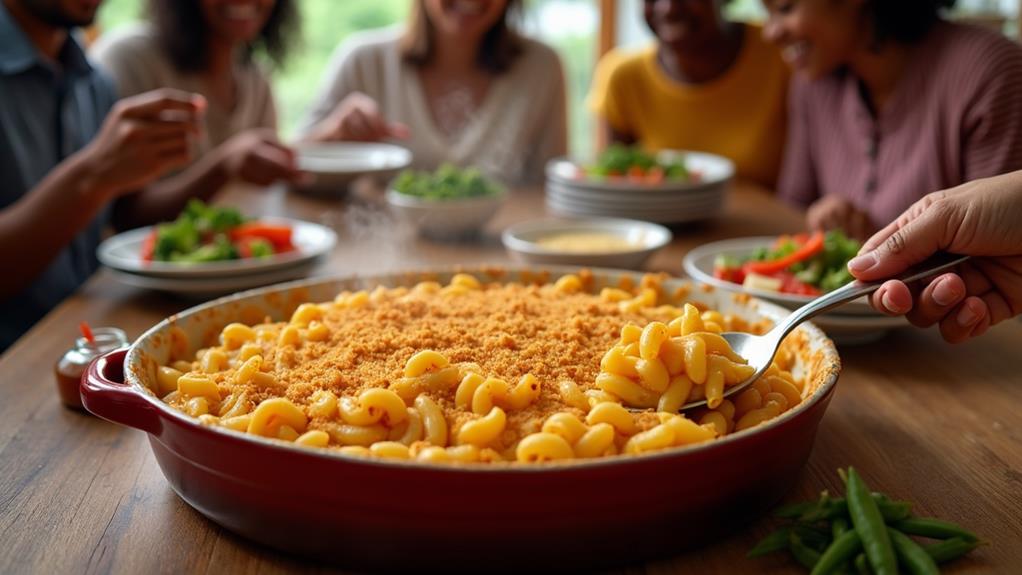
Suggested for you...



